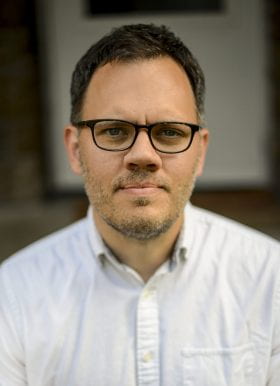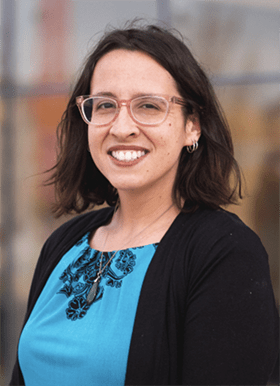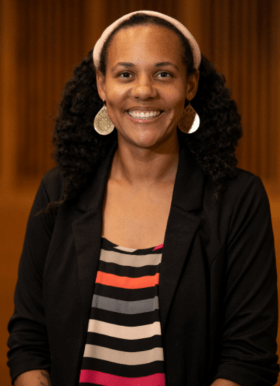
CRE2 Undergraduate Course Innovation Grant(Credits, variable)
The submission cycle for the Undergraduate Course Innovation Grants is now closed.
Course Description
This undergraduate-level seminar will be offered by a CRE2 Faculty Affiliate or Affiliates (team-taught courses are also eligible and encouraged to apply). CRE2 will fund the course in an amount up to $5,000. Grant funding may be used to create a dynamic, innovative, and collaborative undergraduate engagement. Proposals to support the development of new classes are preferred but not required. Examples include invitations to leading scholars from across the country and world to engage with their course; creating a lab experience with local organizations and stakeholders; generating a range of collaborative outcomes that go beyond the traditional course paper and expand research and practice experiences, such as (podcasts, op-eds, revised Wiki entries), works of art (e.g., murals, sculptures, galleries), a database (e.g., archiving data), etc. The course should follow the CRE2 goal to develop insurgent methodologies, new vocabularies and grammars, and expand conversations about the study of race, ethnicity, and/or equity.
Any CRE2 Faculty Affiliate teaching undergraduate students in fields related to the study of race/ethnicity can apply for the Undergraduate Course Innovation Grant. The course must be open to undergraduate students outside of the Faculty Affiliate’s department. Courses should not be capped below 15 students.
Proposal submissions for the Undergraduate Course Innovation Grant in academic year 2024–2025 will be due by October 16, 2023. The Course Award will be announced in November 2023.
Applications should include the following:
- The CRE2 cover sheet with your chair or dean’s signature. If applying to team teach, each applicant must submit a separate cover sheet.
- A three-page current CV
- Course description and abbreviated syllabus or course outline
- Proposal of up to 800 words
The following criteria will be used in evaluating the proposals by an appointed Undergraduate Course Innovation Grant Fellow Selection Committee:
- The overall quality and significance of the proposed engagement
- The usefulness of the Course in expanding the University’s course offerings in the study of race/ethnicity
- The usefulness of the Course at this stage in the applicant’s career trajectory, including their overall research program
- The potential of the proposed work to advance the broader study of race and/or ethnicity
The Center’s Associate Director will monitor progress on Undergraduate Course Innovation Grant. Grantees will provide an expense report upon request. Grantees will submit a final progress report including any grant proposals, publications, exhibitions, or other scholarly products submitted or in preparation within one (1) month after the end date of their course period and will notify CRE2 of any proposals, exhibitions, and other scholarly products subsequently submitted or awarded/accepted. Grantees’ will acknowledge the CRE2 Undergraduate Course Innovation Grant program using the statement, “This work has been funded by the Center for the Study of Race, Ethnicity & Equity at Washington University in St. Louis Undergraduate Course Innovation Grant program.”
Cover Sheet
Before applying, please download the cover sheet to be signed by your department chair or Dean. You will be asked to upload the completed and signed coversheet during the application process:
Fall 2024 Rotating Undergraduate Studios
The Racialized Sporting Landscape of St. Louis: Athletics, Aesthetics, Bias, and Opportunity in a Divided City

Noah Cohan
Assistant Director of American Culture Studies
- Email: ncohan@nospam.wustl.edu
Amateurism, Athlete Activism, Fandom, Gender, Narrative, Sports

John Early
Senior Lecturer, Sam Fox School
- Email: johne@nospam.wustl.edu
Built environment
Race and place
Site-specific art
Spatial equity
Urban landscape
St. Louis is a divided city: ineluctably marked by racism and the legacies of racial segregation in the form of the “Delmar Divide.” St. Louis is also a championship city: host to the title- winning Cardinals, Blues, and, once, Rams and Hawks. And St. Louis is home to Forest Park, its “Crown Jewel” and one of the premier public parks in the nation, full of sporting and cultural amenities, almost all of them free. In this course we will bring those three strands together and consider: How does race and racism mark the sporting landscape of St. Louis? Why are there no basketball facilities in Forest Park? Why did Black tennis legend Arthur Ashe call his time in St. Louis “the worst nine months I ever spent”? What happened to Sportsmans Park? What was the Fairgrounds Park pool riot? Why is Steinberg Rink closed in the summer months? What would have happened if Bill Russell had played for the St. Louis Hawks?
To answer these questions, we will examine the history of sports, race, and St. Louis as we actively engage the physical landscape of the city, traveling to sites to better understand the realities of access and equity in the landscape as it is currently manifested, and imagine alternatives. The course will also introduce visual methods research and contemporary creative practices in the visual arts as viable—and arguably necessary—means of inquiry that generate forms of knowledge that expand beyond text-centric approaches to research. Students will be asked to produce written work as well as creative projects that are intended to be public- facing, allowing a wider audience to better understand how sporting opportunities have been manifested and shaped by politics, culture, and bias in the Gateway City.
Spring 2023 Rotating Undergraduate Studios
Mapping Art, Race, and-Community on the US-Mexico Border

Ila Sheren
Associate Professor of Art History and Archaeology, Arts & Sciences
- Phone: 314-935-4487
- Email: isheren@nospam.wustl.edu
Course description:
This upper-level undergraduate seminar will delve into the history of “border art” as a category, whether in terms of public art, sculpture, installation, new media, or performance, using the U.S.-Mexico border as an extended in-depth case study. Students will collaborate to add to an ongoing mapping project of community engaged art on the border and create multimedia materials to augment or interpret the data as they see fit. As such, this course builds Digital Humanities practices and methodologies throughout the semester. Students will address some of the major concerns surrounding DH scholarship, particularly those of bias amid the purported “objectivity” of the dataset. Students in the course will also work to map race and population data along with their chosen artworks. In doing so, the course challenges students to think beyond U.S.-centric concepts of race and ethnicity and explore how the “third space” of the border shapes artistic practices and approaches to community.
Psychology of Black Women

Seanna Leath
Assistant Professor, Psychological and Brain Sciences
- Email: leath@nospam.wustl.edu
Black Family Systems
Black Feminist Theory
Education
Gendered Racial Identity Development
Psychosocial Stress
Qualitative Methods
Course description:
This course is designed to provide a critical analysis of the experiences of Black women through a psychological lens. In this course, we will explore topics relating to Black women’s experiences in home, school, and community contexts, such as identity development, socialization experiences, and media portrayals of Black girls and women. The class will also consider how Black women draw on individual strengths and cultural assets to support their personal well being.
The Racialized Sporting Landscape of St. Louis: Athletics, Aesthetics, Bias, and Opportunity in a Divided City

John Early
Senior Lecturer, Sam Fox School
- Email: johne@nospam.wustl.edu
Built environment
Race and place
Site-specific art
Spatial equity
Urban landscape

Noah Cohan
Assistant Director of American Culture Studies
- Email: ncohan@nospam.wustl.edu
Amateurism, Athlete Activism, Fandom, Gender, Narrative, Sports
Course description:
St. Louis is a divided city: ineluctably marked by racism and the legacies of racial segregation in the form of the “Delmar Divide.” St. Louis is also a championship city: host to the title-winning Cardinals, Blues, and, once, Rams and Hawks. And St. Louis is home to Forest Park, its “Crown Jewel” and one of the premier public parks in the nation, full of sporting and cultural amenities, almost all of them free. In this course we will bring those three strands together and consider: How does race and racism mark the sporting landscape of St. Louis? Why are there no basketball facilities in Forest Park? Why did Black tennis legend Arthur Ashe call his time in St. Louis “the worst nine months I ever spent”? What happened to Sportsmans Park? What was the Fairgrounds Park pool riot? Why is Steinberg Rink closed in the summer months? What would have happened if Bill Russell had played for the St. Louis Hawks?
To answer these questions, we will examine the history of sports, race, and St. Louis as we actively engage the physical landscape of the city, traveling to sites to better understand the realities of access and equity in the landscape as it is currently manifested, and imagine alternatives. The course will also introduce visual methods research and contemporary creative practices in the visual arts as viable—and arguably necessary—means of inquiry that generate forms of knowledge that expand beyond text-centric approaches to research. Students will be asked to produce written work as well as creative projects that are intended to be public-facing, allowing a wider audience to better understand how sporting opportunities have been manifested and shaped by politics, culture, and bias in the Gateway City.
Fall 2022 Rotating Undergraduate Studio
Signals, Data, and Equity

Neal Patwari
Professor, McKelvey School of Engineering (ESE & CSE)
- Email: npatwari@nospam.wustl.edu
equity in engineered systems
measurement theory
precarity
systemic racism
Course description:
This course introduces the design of classification and estimation systems for equity, that is, with the goal of reducing the inequities of racism, sexism, xenophobia, ableism, and other systems of oppression. Systems which change the allocation of resources among people can increase inequity due to their inputs, the systems themselves, or how the systems interact in the context in which they are deployed.
This course presents background in power and oppression, to help predict how new technological and societal systems might interact, and when they might confront or reinforce existing power systems. Measurement theory, the study of the mismatch between a system’s intended measure and the data it actually uses, is covered. Multiple example sensing and classification systems which operate on people (e.g., optical, audio, and text sensors) are covered by implementing algorithms and quantifying inequitable outputs.